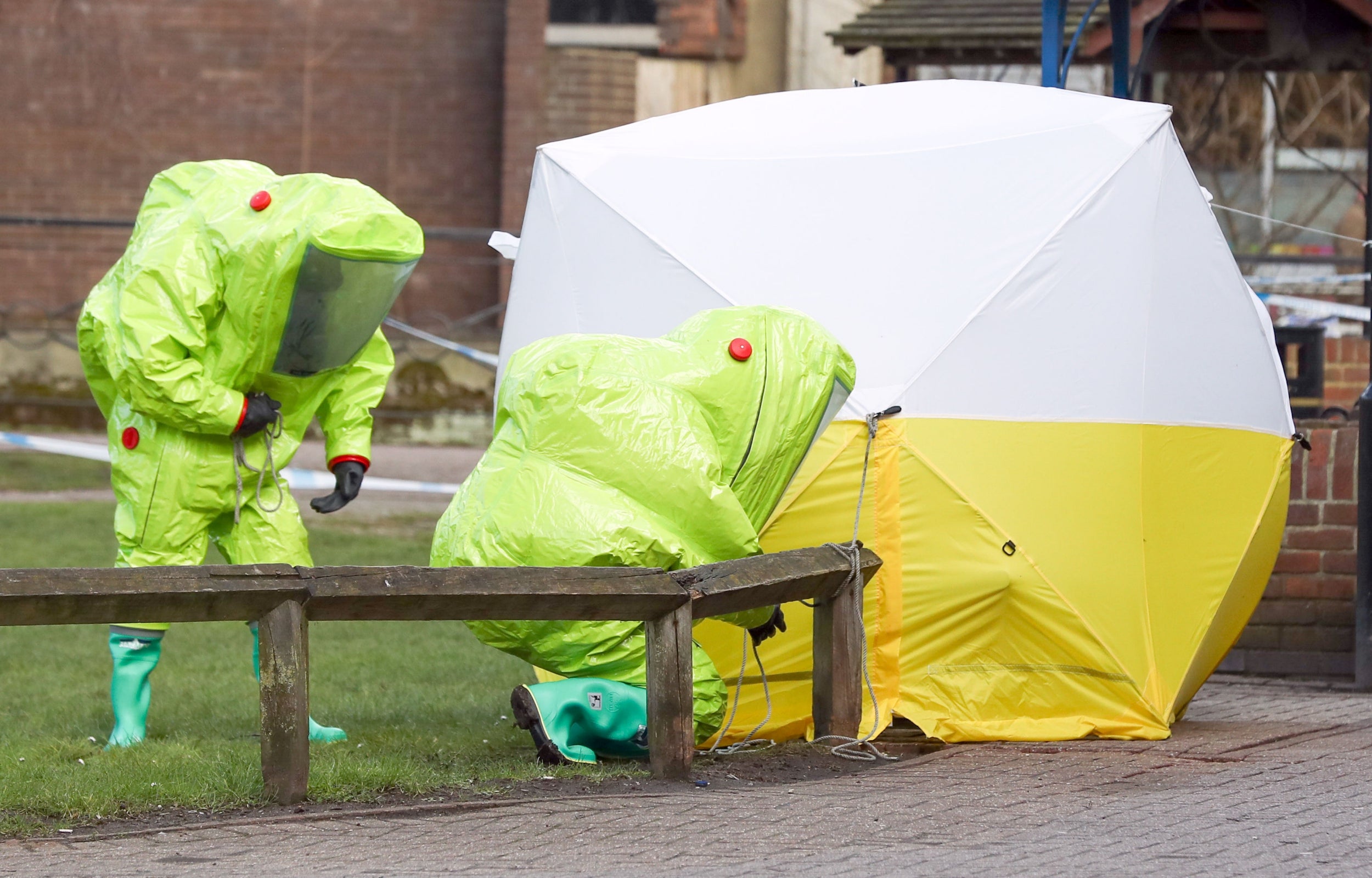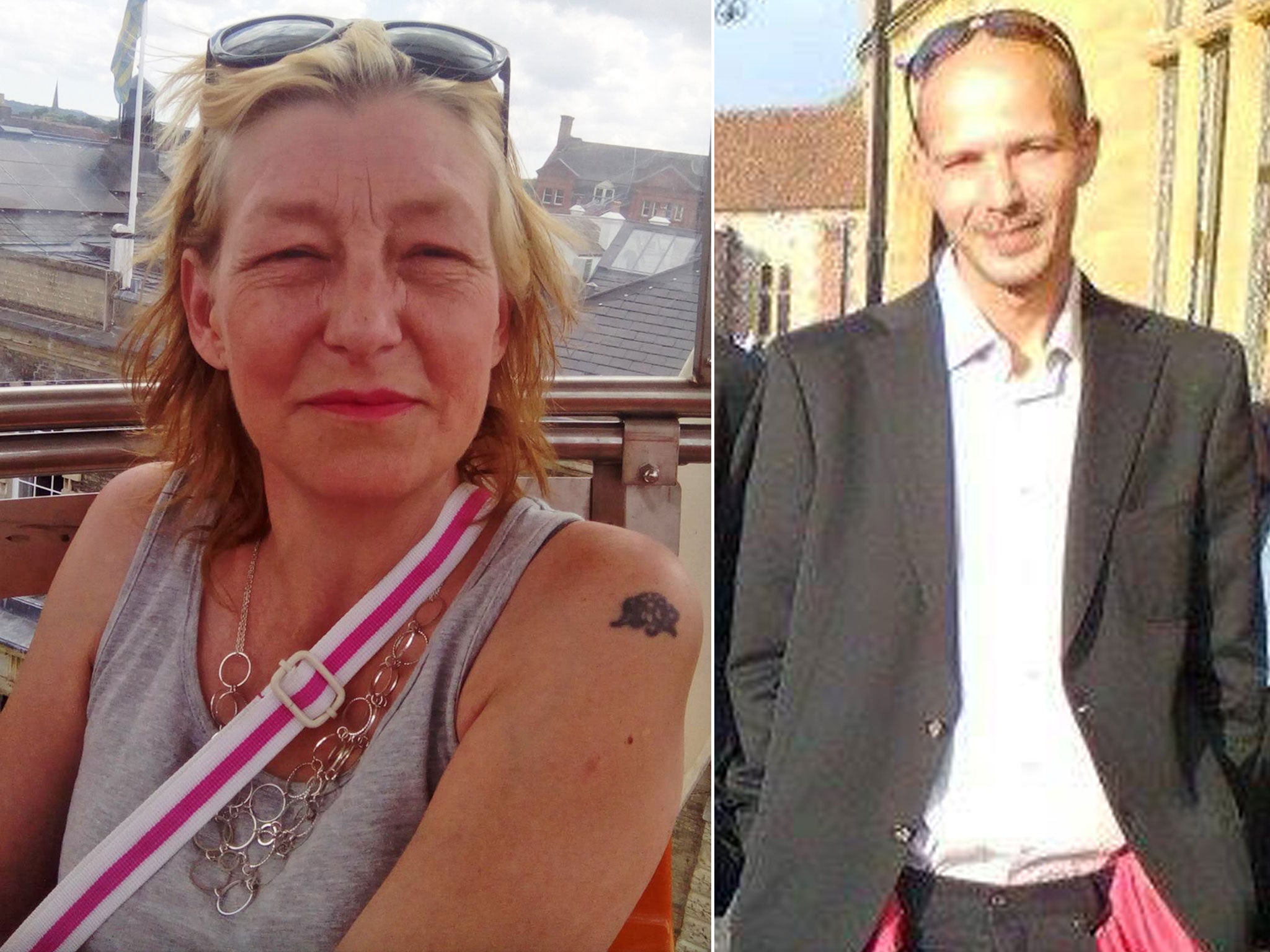Amesbury incident: Sajid Javid blames Russia for 'barbaric and reckless' use of novichok nerve agent
'It is completely unacceptable for our people to either be deliberate or accidental targets, or for our streets, our parks, our towns to be dumping grounds for poison'
Your support helps us to tell the story
From reproductive rights to climate change to Big Tech, The Independent is on the ground when the story is developing. Whether it's investigating the financials of Elon Musk's pro-Trump PAC or producing our latest documentary, 'The A Word', which shines a light on the American women fighting for reproductive rights, we know how important it is to parse out the facts from the messaging.
At such a critical moment in US history, we need reporters on the ground. Your donation allows us to keep sending journalists to speak to both sides of the story.
The Independent is trusted by Americans across the entire political spectrum. And unlike many other quality news outlets, we choose not to lock Americans out of our reporting and analysis with paywalls. We believe quality journalism should be available to everyone, paid for by those who can afford it.
Your support makes all the difference.The British government has blamed Russia for the “barbaric and inhumane” use of nerve agent in Salisbury after two members of the public were accidentally exposed.
Sajid Javid, the home secretary, said the original attack on Sergei Skripal and his daughter Yulia had been “reckless” as a couple believed to have come into contact with remaining novichok fight for their lives in hospital.
“The use of chemical weapons anywhere is barbaric and inhumane,” he told MPs following a meeting of the government’s emergency Cobra committee.
“The decision taken by the Russian government to deploy these in Salisbury on 4 March was reckless and callous. There is no plausible alternative explanation to the events in March other than that the Russian state was responsible.”
Mr Javid said that a total of 150 Russian diplomats had been expelled by Britain and other nations over the Salisbury attack and that the UK was already “consulting with allies” over the latest incidents.
“The eyes of the world are currently on Russia not least because of the World Cup,” he added.
“It is now time that the Russian state comes forward and explains exactly what has gone on. Let me be clear – we do not have a quarrel with a Russian people, rather it is the actions of the Russian government that continue to undermine our security and that of the international community.
“We will stand up to the actions that threaten our security and that of our partners. It is completely unacceptable for our people to either be deliberate or accidental targets, or for our streets, our parks, our towns to be dumping grounds for poison.”
The Russian government has denied involvement in the attack on Mr Skripal and any role in or knowledge of the incident in Amesbury.
Speaking at a press conference with journalists earlier on Thursday, Kremlin spokesman Dmitry Peskov claimed Britain had yet to produce any convincing evidence of either incident.
“At the very start, Russia offered a joint investigation,” he said. “The British side has shown no interest in our proposal.”
Mr Javid said the government had been expecting “further disinformation from the Kremlin as we saw after the Salisbury attack”, following a glut of conspiracy theories earlier this year.
The home secretary said security services “main line of inquiry” is that Dawn Sturgess and Charlie Rowley, who collapsed hours apart on Saturday, were exposed to novichok leftover from the attempted assassination of the Skripals.
“I understand there will be some concerns over what this means for public safety,” he added, recognising that local residents were “anxious”.
“Public Health England’s current advice is that there is no significant risk to the wider public.”
Diane Abbott, the shadow home secretary, told MPs that the public had been assured that Salisbury was “decontaminated at great expense and with great thoroughness”.

“The House and the public at large want reassurance but they want it based on facts,” the Labour MP added. “This second incident, as well as causing great public concern, will be a blow to business and retail in the area who were just recovering from the fall-out in Salisbury.”
Mr Javid said that all sites in and around the Wiltshire city that were decontaminated following the Skripal case have been tested and are safe, while “any items that may have harboured any residual amount of the agent were safely removed for disposal”.
“There is no evidence that either the man or the woman in hospital visited any of the places that were visited by the Skripals,” he added.
“Our strong working assumption is that the couple came into contact with the nerve agent in a different location to the sites which have been part of the original clean-up operation.”
If police trace the location where Ms Sturgess and Mr Rowley were exposed, it could provide vital clues on the culprit behind the original poisoning.
They remain in a critical condition at Salisbury District Hospital, where Mr Javid said medics had used their expertise from treating the Skripals to provide early intervention for nerve agent exposure.
The couple, who are in their 40s and both had children, visited Salisbury city centre on Friday and collapsed hours apart the following day.
The Organisation for the Prohibition of Chemical Weapons, which confirmed the UK's findings that novichok was used in March, has been notified by the government.
Ben Wallace, the security minister, said Ms Sturgess and Mr Rowley were not directly targeted and had no link to the Skripals.
“The working assumption would be that these are victims of either the consequences of the previous attack or something else,” he told BBC Radio 4’s Today programme.

He suggested that the fact Mr Sturgess and Mr Rowley did not fall ill until the day after they visited Salisbury indicates that they may have been exposed to a lower concentration of novichok, which therefore took longer to be absorbed into their bodies and take effect.
John Glen, the Conservative MP for Salisbury, believes Ms Sturgess and Mr Rowley had come into contact with “discarded paraphernalia” from the Skripal incident.
“My strong instinct is that they have somehow encountered some discarded paraphernalia from the Skripal incident,” he added. “Novichok does not degrade of its own volition.“
Ms Sturgess collapsed at around 10am on Saturday morning and Mr Rowley fell ill at 3.30pm the same day.
Friend Sam Hobson described him “in a zombie-like state”, adding: “He felt ill and went for a shower. Then his eyes went bloodshot and like two pin pricks, he began garbling incoherently…he was making weird noises and acting like a zombie. He slumped against the wall.”
Medics initially believed the pair had taken a contaminated batch of drugs, but had samples sent to Porton Down on Monday after becoming concerned over the symptoms they were displaying.
Public Health England (PHE) has sought to reassure the public for a second time after having declared Salisbury city centre safe and reopening streets and businesses cordoned off after the March attack.
Its medical director, Paul Cosford, told Sky News members of public in Salisbury should avoid picking up discarded objects as a precaution.
Mike Wade, the deputy director for health protection for PHE South West, said there was “no significant health risk to the wider public” but the assessment will be kept under review.
He advised anyone who had visited the five locations shut off by police, including a church, park, Boots branch and the victims’ homes, to take precautionary action by washing the clothes they were wearing and wiping down personal belongings like phones and bags.
